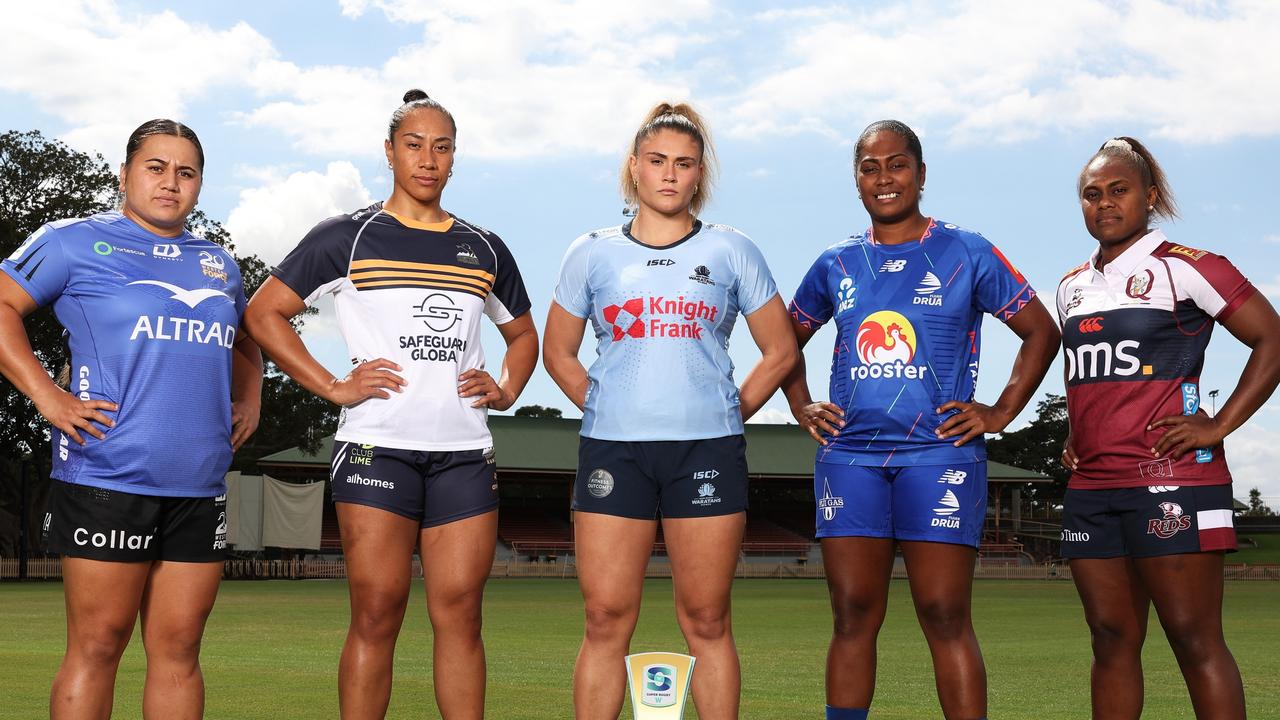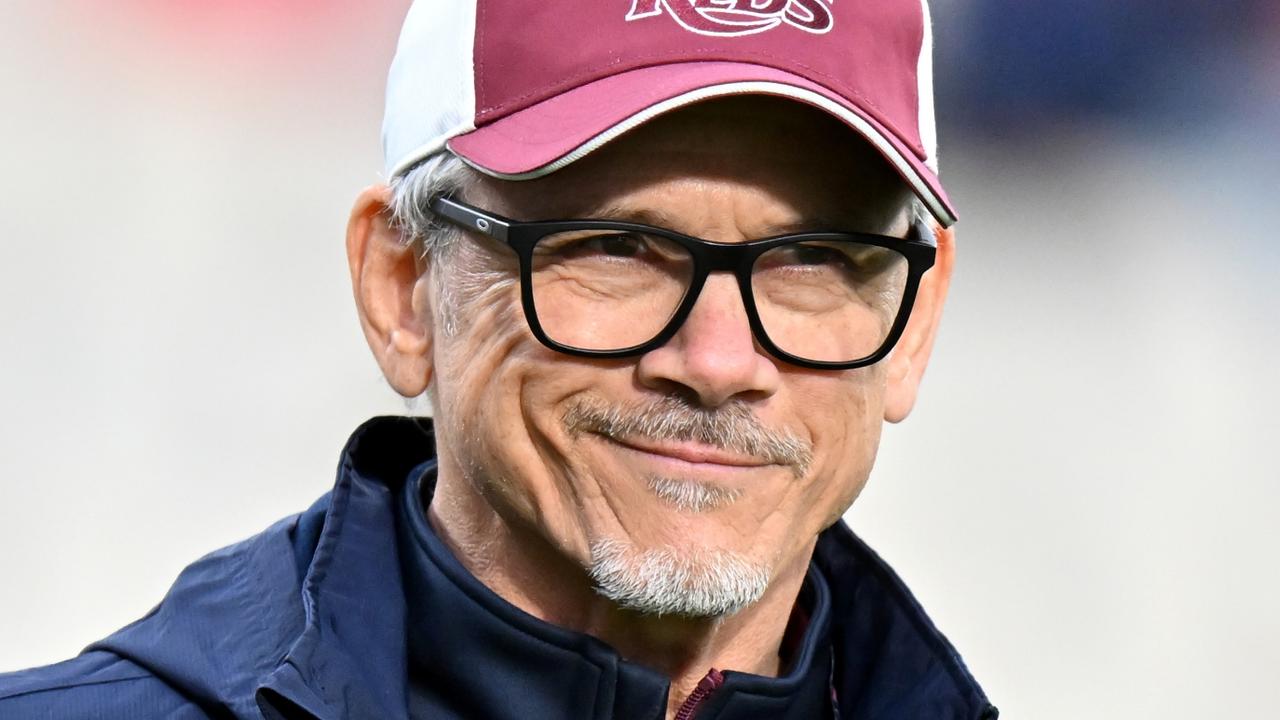Rugby World Cup 2015 A to Z: Anthems to Zero sum games via the Queen and dwarfs
ANTHEMS penned by ‘70s pop gurus and teams with zero wins to their name. That’s what bookends our World Cup A to Z. But what else makes the list?
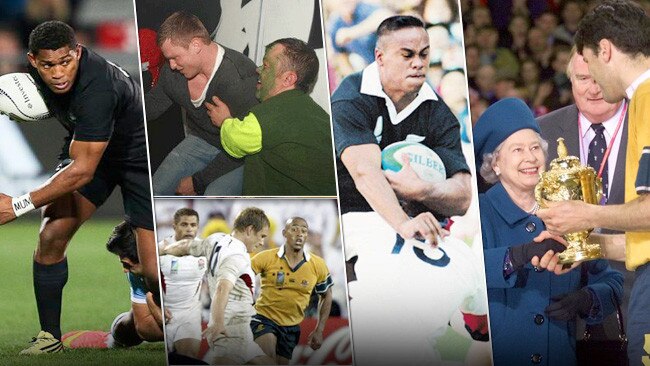
Rugby
Don't miss out on the headlines from Rugby. Followed categories will be added to My News.
A — Anthems
The World Cup throws up a collection of weird and wonderful national anthems. Uruguay’s (”Uruguayans — Fatherland or Death!”) has the distinction of being the world’s longest national anthem, with 105 bars of music that takes nearly 7 minutes to play. Thankfully, there is a “short” 2 minute version for sporting events like the World Cup. That puts it at about the same length as the South African national anthem — and both are longer than Star Spangled Banner.
Given they’re part republic, part British, Ireland have a rugby anthem, which was written by a guy who wrote songs for the Bay City Rollers and Cliff Richard.
B — Ball-gate
The English campaign at the 2011 Rugby World Cup lurched from crisis to crisis (see D for Dwarfs), and it started when two English staff were suspended for two matches for illegally switching balls for Jonny Wilkinson’s conversion attempts.
HAKA SPOOF: This sort of thing is why everyone hates you, England
HISTORY MEN: Wallabies embrace past as they look to the future
OPENING NIGHT: The snubbed Wallaby set to shine for Fiji
After Wilkinson kicked poorly against Argentina a match earlier, England’s kicking coach Dave Alred and trainer Paul Stridgeon repeatedly gave the no. 10 a different ball to kick after tries in their 67-3 win over Romania. The IRB cracked down and the RFU stood the two men down.
C — Catt, Mike
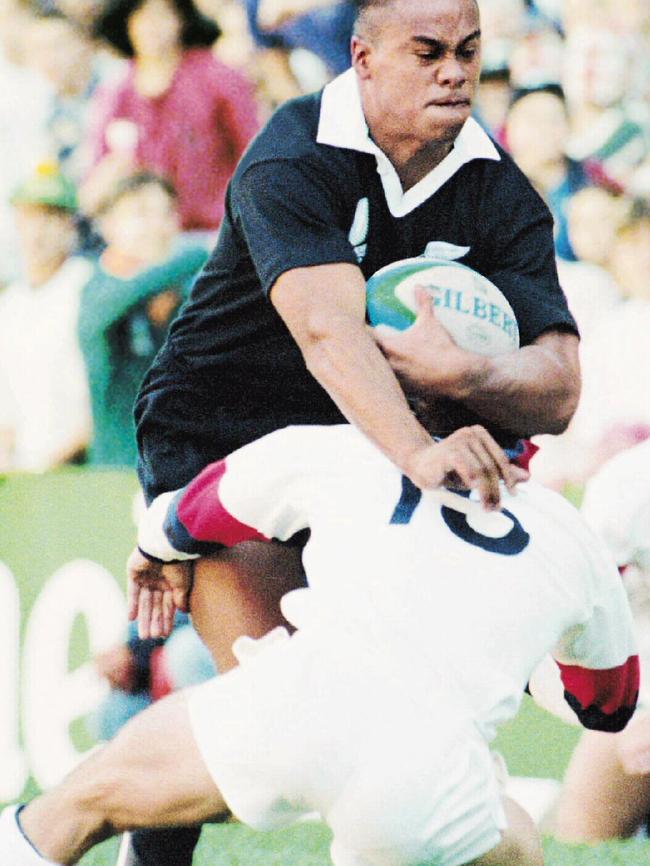
Ask anyone for the most enduring memory of Jonah Lomu and they’ll nominate that try in the 1995 Rugby World Cup where he trampled over some poor bugger in an England jersey like he wasn’t there. The poor bugger was Mike Catt. “I just thought to myself, oh-oh, this could be a bit of a trainsmash,” Catt recounted — accurately — many years later.
Catt got his cream in the end. The veteran centre was in England’s 2003 Rugby World Cup winning side, and indeed was the last man to touch the ball in the final when he kicked it into touch to end the match after extra time.
D — Dwarfs
England’s coaches decided it wouldn’t hurt to let their players out for a night in Queenstown during the 2011 World Cup. It did hurt. Boy, did it hurt.
Some of the highlights from the ensuing carnage was a squad of exceptionally drunk footballers who lobbed at a pub with a dwarf-throwing competition, and captain Mike Tindall caught on CCTV tangled up with a blonde woman. He had married Zara Phillips, the Queen’s granddaughter, just six weeks earlier.
Headlines exploded, England were knocked out soon after in the quarter-finals, Tindall was sacked and coach Martin Johnson was moved on in the wake of the disastrous campaign.
E — Ex-pats
The World Cup’s truly global nature is exemplified by the fact most teams have at least one player and/or coach who was born in a rival country. New Zealand are the biggest exporters — although they import heavily too from the Pacific Islanders — and Australia isn’t far behind on both fronts.
Here’s a list of some (mostly) Aussie-raised members of other teams at the 2015 RWC: Luke McLean (Italy), Craig Wing (Japan), Eddie Jones (Japan coach), Greg Peterson (USA), Hayden Smith (USA), Tawera Kerr-Barlow (New Zealand), Nemani Nadolo (Fiji), Ben Volavola (Fiji), Steve Mafi (Tonga), Les Kiss (Ireland assistant coach), Matt Taylor (Scotland assistant coach).
F — Field goals
There have been some famous field-goals in rugby history but three men can lay claim to the most crucial in World Cups. Jannie de Beer kicked a record five drop-goals to knock England out of the 1999 World Cup quarter-finals, but a week later in the semi-final Stephen Larkham turned the tables when he knocked over a 40-metre plus field goal in extra-time to beat the Springboks.
But — ugh — no-one can top THAT droppie by Jonny Wilkinson in extra-time of the 2003 World Cup final, with seconds left on the clock. It was so well struck many people forget Wilkinson kicked it with his wrong foot.
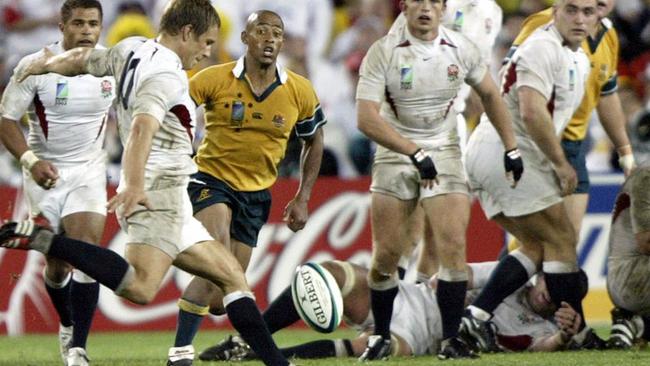
G — Gordon Hamilton
Who can forget the loping Irish flanker who almost knocked Australia out of the 1991 World Cup two matches before Nick Farr-Jones held aloft the Webb Ellis Cup at Twickenham? Hamilton scored a runaway try — his only Test try — with four minutes left to send Landsdowne Road into meltdown and give Ireland a 15-12 lead. Famously, Michael Lynagh rallied the troops in Farr-Jones’ absence and the Aussies rolled downfield, ignored a tying field goal and repeated a backline move that had seen David Campese score a try earlier in the game.
Campo was stopped short but Lynagh scored in support. The home crowd was so silent Gordon Bray’s commentary could be heard in the stand.
H — Home Nations
England, Ireland, Wales and Scotland, for the record. All four home nations voted AGAINST a Rugby World Cup when the long-discussed idea was put to a vote among the rugby playing nations of the world in 1985.
But with Australia, New Zealand and France pushing the hardest, enough votes were eventually gathered and the first Rugby World Cup was held in 1987, co-hosted by Australia and New Zealand.
Of the seven World Cups held since, the Home Nations have produced just one winner. Co-incidence?
I — Irish, luck of
Ireland are touted as a potential World Cup dark horse for the 2015 Rugby World Cup after dominating the Six Nations for the past two years, beating the Wallabies and going within inches of beating the All Blacks in New Zealand.
But Ireland and World Cups haven’t tended to mix well: they have never got past the quarter-finals. In five appearances in the World Cup play-offs stage, the Irish have never made the semi-finals. Australia knocked them out in both 1987 and 1991.
J — Jonny
Jonathan Peter Wilkinson, CBE. Otherwise known as the shy Pom who drove a dagger through the heart of the Wallabies in the 2003 Rugby World Cup final.
Jonny played in four World Cups and it was no coincidence England made successive finals in 2003 and 2007, when the goal-kicking freak was at his dominant best behind dominant packs. He sent Australia packing in both of those tournaments. In a piece of good news, Stuart Lancaster left Jonny out of his England squad for the 2015 Rugby World Cup, where they share a pool with the Wallabies. Sure, he’s been retired for over a year, but you can never be too careful.
K — Kawakawarau
The magic Fijian leaf that was applied to the broken leg Waisake Naholo by his uncle for four days. The fracture — sustained on Test debut — has since miraculously healed and the flying Highlanders winger has defied the odds and been picked for the All Blacks World Cup squad. That mangled sound you hear is medical staff from around the globe rushing to Fiji and trying to pronounce “Kawakawarau”.
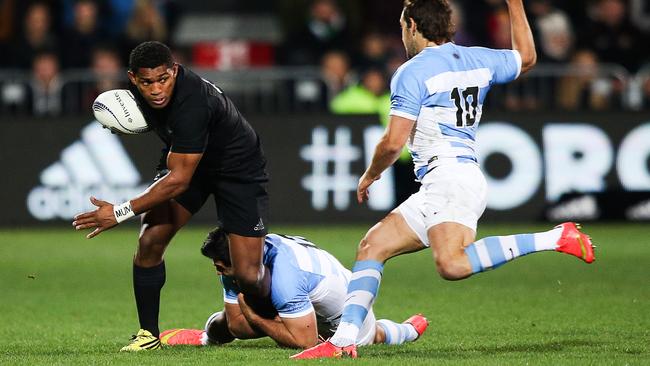
L — Lomu
The man mountain never held aloft a World Cup but can take some solace in the fact he sits atop the record books for most tries at the tournament, with 15. His four tries against England in the 1995 semi-final (see Catt, Mike) was memorable, and so too his record-equalling 8 at the 1999 World Cup. 15 is a mark likely to stand too. His nearest active challengers are Bryan Habana and Drew Mitchell, and both need six tries at the 2015 World Cup to beat Jonah.
M — Million
One million dollars. It is both an Austin Powers ransom and what it will cost you for the most expensive corporate hospitality suite at Twickeham during the World Cup. A private “Webb Ellis Suite” and tickets to ten matches at Twickenham — including most of England’s pool matches, all quarters and semis and the final — sets you back over $A33,000 per person. Oh, and you have a minimum 30 people. Ker-ching — a million bucks.
Needless to say, that package is sold out, and so are many other ridiculously priced corporate packages. Ever wanted an answer where your bank fees go?
N — Nicknames
Many nations, many team nicknames. Here is a sample of the odder nicknames you’ll encounter at the 2015 Rugby World Cup: The Oaks (Romania), Los Teros (Uruguay — it’s a bird), The Brave Blossoms (Japan — changed from Cherry Blossoms), The Eagles (USA), The Welwitschia (Namibia — a “living fossil” plant), The Bears (Russia), Los Pumas (Argentina) and the Lelos (Georgia — a sport).
O — Ox
South African prop Os Du Randt, “the Ox”, is one of only six players to win more than one Rugby World Cup. He won in 1995 and in 2007. And whaddya know — the other five are all Australians: John Eales, Tim Horan, Dan Crowley, Jason Little and Phil Kearns — 1991 and 1999.
P — Plane
Not of the Hayne variety, but the 747 version which flew at an alarmingly low altitude over Ellis Park in Johannesburg ahead of the 1995 World Cup final. The South African airways jet had “Good Luck Bokke” painted on its side and reports later said the pilots almost stalled as they flouted aviation rules to buzz the crowd.
It was a shock to all, and induced panic for security staff of the leaders of South Africa, who were almost entirely assembled inside Ellis Park. Even new president Nelson Mandela, who later famously lifted the Webb Ellis trophy after the Springboks win.
Q — Queen
Has awarded the World Cup to a winning captain twice — and both times to Australians. Her Majesty gave “Bill” to Nick Farr-Jones in 1991 and John Eales in 1999, and on the latter occasion, players had voted on the Republic referendum earlier that day. Tim Horan told the Queen “I voted for you” at the presentation. Oh, did we mention the Queen will be doing presentation duties again in London at the 2015 World Cup. Omen.
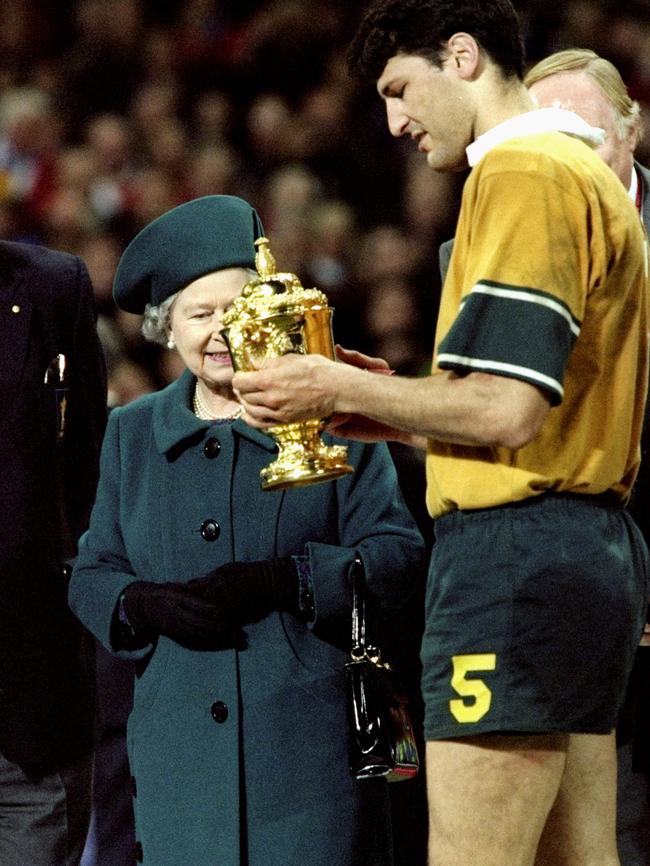
R — Rowboat jousting
Two guys standing with jousting sticks on the sterns of boats as they’re rowed towards each other at pace. One ends up in the drink.
Now that is sport. And the Rugby World Cup connection? How about Imanol Harinordoquy, the veteran French backrower who lists “water jousting” as his favourite pastime outside of rugby. The ancient sport — which is traced back as far as the ancient Egyptian and Greek times — is hugely popular in parts of France.
S — S***house
The place to which Wallabies coach Bob Dwyer loudly advised one of his players to kick the ball to during a tense period of the 1991 World Cup final at Twickenham. Sound advice, sure, but the problem was where Dwyer issued the advice. The coaches box was situated in the open stands at the famous London ground, and was surrounded by the seating for a range of VIPs. Dwyer was chastened when he realised a VVIP was in earshot. Her identity can be found back at the letter Q.
T — Timeless
The oldest player to ever lace on a boot in a Rugby World Cup was Diego Ormaechea, widely considered as Uruguay’s most important ever rugby player. At the end of a 20-year Test career, the big no. 8 captained Uruguay to their first ever World Cup in 1999 aged 40. Ormaechea even helped the side win a game against Spain, and it remains their only World Cup victory.
U — USA
You might think the All Blacks have been the dominant team in world rugby for most of the game’s history. If you are looking for the team who has held the crown of world champion for the longest, however, look no further than the USA Eagles.
The Yanks were the last side to win an Olympic medal in 1924, and until 1987, there was no tournament held to determine who was the best in the world. The US had won the 1920 gold medal as well so, let’s grab the abacus ... that means the USA were reigning world champions for 67 years.
V — Van Vuuren
Jarryd Hayne? Israel Folau? Simon O’Donnell? Jeff Wilson? All impressive, but if you are looking for the king of cross-code athletes make sure you include Rudy Van Vuuren in the conversation. Rudy Van who? The Namibian made history in 2003 when he played in the Rugby World Cup and the Cricket World Cup in the same year; as a fly-half and medium pacer.
Sadly, it was cricket scores for Namibia at both tournaments. Including Australia’s record 142 — 0 win at the Adelaide Oval, Namibia conceded 310 points in four games and scored just 28. Twenty-eight was also the number of runs Van Vuuren conceded in one over to Darren Lehmann at the 2003 Cricket World Cup.
W — Webb Ellis
Pop quiz: how many William Webb Ellis trophies are there? If you said two, congrats. There are in fact a pair of Bills. One is the original 1906 created by Carrington and Co. of London, which is itself a copy of another cup designed in 1740 by Paul de Lamerie, and the second is a replica made in 1986.
The replica is the one the teams are given. It is made of gilded silver and teams are victorious teams are asked to take out an insurance policy to the value of $60,000 when they are allowed to take “Bill” home for three of the four year World Cup cycle.
X — Xavier Garbajosa
French fullback Xavier Garbajosa is the only rugby player with a name starting in X who played in a World Cup final. Thanks scoop, I hear you say, but wait — this is a double X. Garbajosa lined up against the Wallabies in the 1999 decider in Cardiff and it didn’t end well for him or his team. France were thumped 35-12 and Garbajosa suffered a broken shoulder when Ben Tune steamrollered over the top of him to score in the corner.
Xavier then required (second count) an x-ray. Thankyou very much.
Y — Youth brigade
The youngest player to ever lace on a boot at a World Cup is Thretton Palamo, of the USA, who was aged 19 years and 8 days when he played South Africa in 2007. Vasil Lobzhanidze of Georgia is set to break the record later this month, however. He was born on 14 October 1996.
Z — Zero wins
Six teams have yet to taste victory at the Rugby World Cup. Namibia (4 tournaments), Zimbabwe (2), Russia (1), Portugal (1), Spain (1) and Ivory Coast (1) have gone winless. Namibia and Russia get another chance in 2015.
Originally published as Rugby World Cup 2015 A to Z: Anthems to Zero sum games via the Queen and dwarfs

